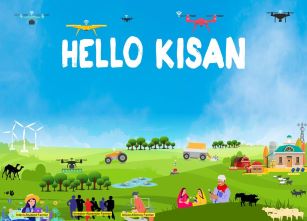
Trending News
The Perilous Practice of Using Untreated Sewage Water in Agriculture
Hello Kisan Jan 20, 2025
Hello Kisan Jaipur 20 January 2025
The use of untreated sewage water inagriculture, particularly in urban and peri-urban areas, poses significanthealth risks and environmental consequences.
Harmful Effects:
- Contamination of Food Crops: Sewage water often contains harmful bacteria, viruses, and parasites that can contaminate crops, leading to foodborne illnesses.
- Soil Degradation: Excessive use of untreated sewage can degrade soil quality, leading to nutrient imbalances and reduced fertility.
- Water Pollution: The discharge of untreated sewage into water bodies can contaminate water sources and harm aquatic life.
Mitigating the Risks:
- Proper Treatment: Implementing effective sewage treatment systems to remove contaminants and produce safe, reusable water.
- Safe Irrigation Practices: Adopting drip irrigation or other efficient methods to minimize the risk of contamination.
- Regular Monitoring: Conducting regular testing of soil and water quality to identify potential health risks.
- Public Awareness: Educating farmers and consumers about the dangers of using untreated sewage water.
- Government Regulations: Enforcing strict regulations to prevent the misuse of untreated sewage in agriculture.
By addressing these issues and promotingsustainable agricultural practices, we can protect public health and theenvironment.